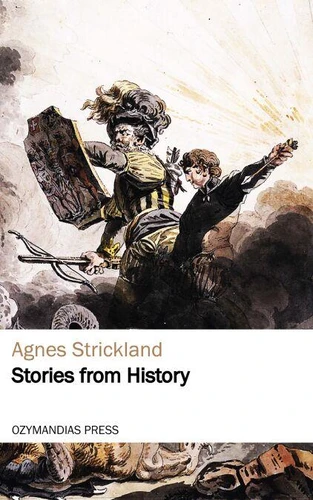Stories from History
Par :Formats :
Disponible dans votre compte client Decitre ou Furet du Nord dès validation de votre commande. Le format ePub est :
- Compatible avec une lecture sur My Vivlio (smartphone, tablette, ordinateur)
- Compatible avec une lecture sur liseuses Vivlio
- Pour les liseuses autres que Vivlio, vous devez utiliser le logiciel Adobe Digital Edition. Non compatible avec la lecture sur les liseuses Kindle, Remarkable et Sony
 , qui est-ce ?
, qui est-ce ?Notre partenaire de plateforme de lecture numérique où vous retrouverez l'ensemble de vos ebooks gratuitement
Pour en savoir plus sur nos ebooks, consultez notre aide en ligne ici
- Nombre de pages387
- FormatePub
- ISBN978-1-5312-6766-7
- EAN9781531267667
- Date de parution30/01/2018
- Protection num.pas de protection
- Taille696 Ko
- Infos supplémentairesepub
- ÉditeurJovian Press
Résumé
The early history of England, or Britain, as it was anciently called, is involved in great obscurity. The reason of this is, that its first inhabitants, a colony from some other nation, were so much occupied in providing for the actual wants of life, as to have but very little time to spare for the purpose of preserving records of the country whence they came. They were, too, in a state of barbarism, and altogether ignorant of the arts of reading or writing.
When they wished to keep a memorial of any great event, such as a victory, a treaty of peace, the death of one king, or the coronation of another, they marked the spot where the occurrence took place with a heap of stones, or set up a rough hewn pillar, and bade their children recount to their descendants the circumstance which it was intended to commemorate. An imperfect memory of certain great events was thus kept alive, and the pillar, or the heap of stones, was appealed to as a memorial, long after the people who had assisted in raising it were dead.
When they wished to keep a memorial of any great event, such as a victory, a treaty of peace, the death of one king, or the coronation of another, they marked the spot where the occurrence took place with a heap of stones, or set up a rough hewn pillar, and bade their children recount to their descendants the circumstance which it was intended to commemorate. An imperfect memory of certain great events was thus kept alive, and the pillar, or the heap of stones, was appealed to as a memorial, long after the people who had assisted in raising it were dead.
The early history of England, or Britain, as it was anciently called, is involved in great obscurity. The reason of this is, that its first inhabitants, a colony from some other nation, were so much occupied in providing for the actual wants of life, as to have but very little time to spare for the purpose of preserving records of the country whence they came. They were, too, in a state of barbarism, and altogether ignorant of the arts of reading or writing.
When they wished to keep a memorial of any great event, such as a victory, a treaty of peace, the death of one king, or the coronation of another, they marked the spot where the occurrence took place with a heap of stones, or set up a rough hewn pillar, and bade their children recount to their descendants the circumstance which it was intended to commemorate. An imperfect memory of certain great events was thus kept alive, and the pillar, or the heap of stones, was appealed to as a memorial, long after the people who had assisted in raising it were dead.
When they wished to keep a memorial of any great event, such as a victory, a treaty of peace, the death of one king, or the coronation of another, they marked the spot where the occurrence took place with a heap of stones, or set up a rough hewn pillar, and bade their children recount to their descendants the circumstance which it was intended to commemorate. An imperfect memory of certain great events was thus kept alive, and the pillar, or the heap of stones, was appealed to as a memorial, long after the people who had assisted in raising it were dead.







